Become Our Sponsor
SJC Boxing Club, Inc. offers many opportunities to learn about boxing and participate.
Contact Us to Learn MORE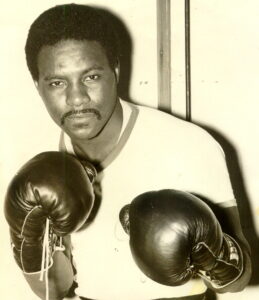
White, the ninth of ten children, was born in Wrightsville, Georgia, on March 17, 1945. White was eleven years old when his mother, Alma, packed up her family and moved to Cleveland, Ohio in search of a fresh start. A natural athlete, White excelled in sports, starring in football, track, and cross-country at East Tech High School.
After graduating from high school in 1963, White enlisted in the United States Air Force, completed basic training at Lackland Air Force Base, in Texas, and was subsequently stationed at K. I. Sawyer Air Force Base, in Michigan, working in the Base Equipment Management Office for the Strategic Air Command.
It was while in the Air Force that White took up boxing, coupling his natural athleticism and desire into becoming a promising prospect. We first met at Torrejon Air Force Base, in Madrid, Spain, in January of 1965. We were both competing in a tournament, I as an eighteen- year-old welterweight and White, a year older, as a middleweight. After winning our respective bouts, White and I wound up as teammates on the European Air Force Boxing Team. They bunked me, the youngest, in with Joe Souza, the oldest and a bantamweight, and one of the best professional cutmen working today. Joe thought it ironic that he was supposed to look after me, when he always said that he was the one who needed watching.
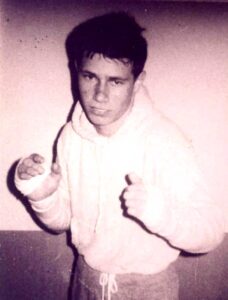 |
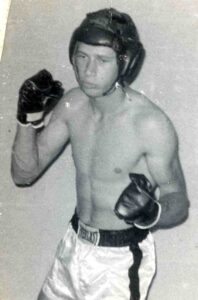 |
 |
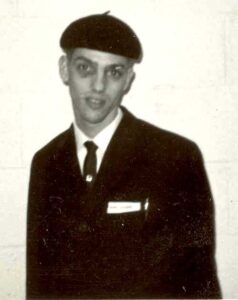 |
| Steve Canton | Steve Canton | Steve Canton | Joe Souza |
After each of us won in our weight classes at the 1965 USAFE tournament in London, England, the three of us split up. White returned to his base at Torrejon, I returned to mine in Italy, and Souza to his in France. The three of us looked forward to reuniting on the team in early 1966.
My regular job in the Air Force was as a morse intercept operator. One day, in January 1966, I intercepted a message originating from Southern Spain. Experienced morse intercept operators could usually tell who was sending a transmission by the “accent”of the sender. Despite contradictions from my superiors, I insisted that the message I had intercepted was being sent by the Russians, specifically the Russian Army. This raised red flags. We were in the middle of the Cold War, and little did I know that an Air Force B-52 had just crashed in Southern Spain, dropping four nuclear bombs, three on land and one in the sea, causing considerable radioactive leakage. We were trying to recover these bombs but were unable to locate them. The Russians had found the wreckage first, but we were able to decode their messages, learn the location, and deploy our troops to the area in time to conduct the recovery.
Shortly thereafter I traveled to Chateauroux Air For Base, in France, for the 1966 USAFE boxing championships. I was disappointed to learn that White was working at the B-52 crash site and wouldn’t be able to attend. At 3 a.m. I heard a frantic banging on my door by none other than a very ragged looking White. The base commander had ordered his release from the recovery detail so he could compete in the tournament. The first thing White asked for was a scale. He hadn’t trained in weeks, so it was no surprise that he tipped the scales at 173 pounds, eight pounds over his weight limit of 165. Borrowing my sweat suit, White spent the rest of the night running and shadow boxing, so he could make weight.
When we walked into the weigh-in at 8 a.m. the next morning, everyone was surprised to see him, but we certainly were not going to let anyone know what he had gone through to get there. White stepped on the scale at 165 pounds and went on to beat a primed and conditioned Louis Grant that night. Grant was considered to be one of the best amateur middleweights in the world at that time. White continued to win tournament after tournament until a couple of years later, because someone else was preferred for his weight class, White was moved to the light-heavyweight division. Despite the additional weight on his short frame (5′, 9″), White went all the way to the finals of the Pan American Games trials, losing a questionable decision to the medalist Arthur Redden, who represented the Marine Corps. Most people who saw White fight said that he resembled and reminded them of the great Ezzard Charles, but his personal favorites were Dick Tiger, Ray Robinson, and Emile Griffith.
During this time period, White was being pressured to turn professional. Some wanted him to fight under an alias, so he could continue to box on the Air Force team; while he was also being courted by a Spanish manager. On several occasions, White had gone to Madrid to spar with Luis Folledo, a local world ranked middleweight (who finished his career with a record of 121-6-1, with 57 K.O.’s). Although Folledo was taller and stronger, White was quicker, and slicker, and he always got the better of the sparring. Folledo’s people wanted White to stay in Spain and turn pro with them.
After I was discharged from the Air Force in 1968, I lost track of White. I had always assumed that he would become a world champion and that our paths would cross again, just as they have with Souza over the years. Periodically, I would check phone books or call old friends, but I always hit dead ends. Thanks to the miracle of the Internet, however, in January of 2000, I found a listing in Georgia. I thought to myself, just how many Formus White’s could there be in the world? When he answered the phone, I don’t know who was more surprised or delighted. I immediately invited him to be a special guest on a show I was promoting that February, in Punta Gorda, Florida. Even though medical problems made it difficult for White to drive long distances, he was determined to come, and he did. Along with fellow special guests Hank Kaplan (inductee for this year’s Boxing Hall of Fame), and former world champion Juan LaPorte, I was equally thrilled to introduce my friend, Formus White, the greatest amateur boxer I ever saw, to the crowd during the show’s intermission.
 |
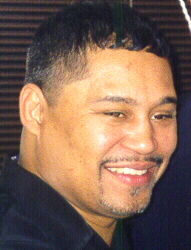 |
| Canton, White, Hank Kaplan | Juan LaPorte |
During our catch-up together, I learned that after Torrejon, White was assigned to Hamilton Air Force Base, in California. After being discharged in late 1968, White stayed on the west coast and took a job driving for Bekins Moving and Storage, Co. Without any gyms in the area and working so much, he gave up any dreams of boxing. He had a few offers to turn pro but was leery of the promises of fancy cars and flashy clothes. White was more interested in buying a house and building financial security for himself.
However, being from a closely-knit family, White eventually decided to move back to Georgia, to work for an older brother, Herman, in his well drilling business. Now in his middle forties, White married for the first time, Sheila, and together they had a son, Formus White, Jr. White had everything he had ever wanted, a loving family and security. Then one day, and it was that sudden, White’s health took a sudden decline. What first started as blurred vision developed into a debilitating condition that froze his head in a forward position close to his chest. He also developed arthritis which extended to his knees, hands, and wrists, and this was compounded by high blood pressure, thyroid and kidney problems, and an enlarged heart, complicated with fluid build up around the heart and lungs, causing breathing difficulties. Although it has not been proven, and probably never will be, White thinks his exposure to radiation in Spain, during the crash recovery operation, is at the root of his illnesses. How else could one explain how someone, who was once a world class athlete, who always took care of himself, could suddenly deteriorate so quickly? Attempting to stave off permanent confinement to a wheelchair, White struggles to use his walker as much as possible and makes monthly visits to his doctors at the Veterans Administration.
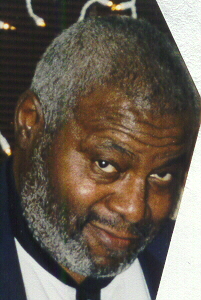 |
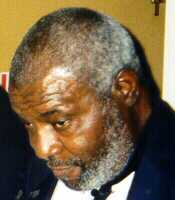 |
| Formus White | Formus White |
His mother, Alma, died a couple of years ago. He has two brothers in Georgia, two sisters in New York, and two brothers and three sisters in Cleveland, Ohio. They get together every couple of years and talk on the phone regularly. Formus says he was the only athlete in the family. His son is fourteen now and is active in football and karate, where he holds a black belt. He has shown an interest in boxing. White is not encouraging him one way or another. He said if his son wanted to box he would say, “If you are serious and give it one hundred percent, I will be with you; if not, don’t even talk to me about it, you will get hurt–boxing is a serious sport.”
Formus White was a could’ve, would’ve, or should’ve been world champion. He could box, he could punch, he was slick, had great balance, always trained hard, and was extremely smart. I believe he would have been a world champion had he fought as a professional. But, unlike so many others, what held him back was not some unforseen flaw in his character, it was a decision he made for himself. I feel honored to have fought on the Air Force Team with him, sparred against him, and been friends with him. Anyone who has ever known Formus White knows he was a champion in life. Sadly, he passed away on March 4, 2009, just 13 days prior to his 64th birthday. Rest in peace my friend. You are missed.

SJC Boxing Club, Inc. offers many opportunities to learn about boxing and participate.
Contact Us to Learn MORE
SJC Boxing Club, Inc. offers many opportunities to learn about boxing and participate.
Contact Us to Learn MORE